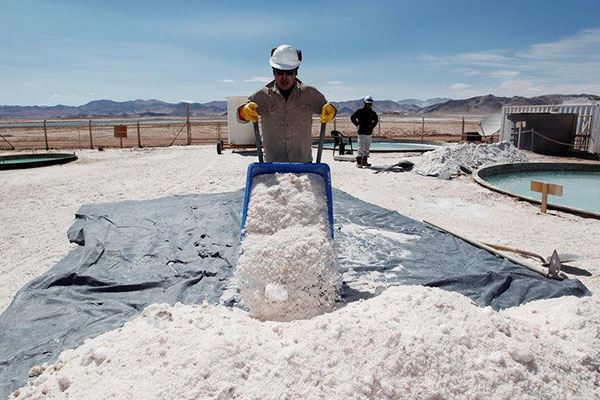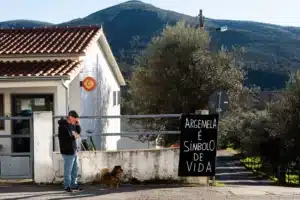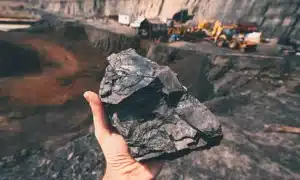If the government goes forwards with its ‘campaign for lithium exploration’ in the north and centre of the country it will be turning its back on pledges made to reduce CO2 emissions.
This is the bottom line of a study revealed today by environmental NGO Quercus, which took part in a dramatic protest at the highest point of the Serra da Estrela mountain range on Saturday.
Over 400 people converged at Torre for the event involving swathes of green material (to signify ‘life’) and protestors lying within them flanked by banners proclaiming: “Respect our existence. Expect our Resistance”.
As reports explained, the demo involved many ‘foreigners’ and was filmed by drone ‘for international publication’ in a bid to force the government to ‘turn back’ from its campaign to sell large tracts of the country for exploration.
Say protestors, the decision not only jars with all international pledges made by this country – the principle one of which is carbon neutrality by 2050 – but will compromise public health and well-being.
Explained Samuel Infante of Quercus, exploration – already threatening numerous UNESCO sites of agricultural heritage – “will have a significant impact in terms of quality of life of populations and on the level of local development in areas affected”.
The perceived ‘race’ by the government to sell licences – for what amounts to over 10% of national territory – “makes no sense”, he stressed, when one considers all the promises and commitments to reduce carbon emissions.
Quercus’ study is to be sent to the government at a moment when environment minister João Pedro Matos Fernandes himself has been quoting the necessity to respect climate pledges.
Talking to journalists about the devastating fires in Amazonia last Friday, Matos Fernandes referred to the importance of the “discourse of compromise, in line with the Paris Accord (on climate change)”.


























